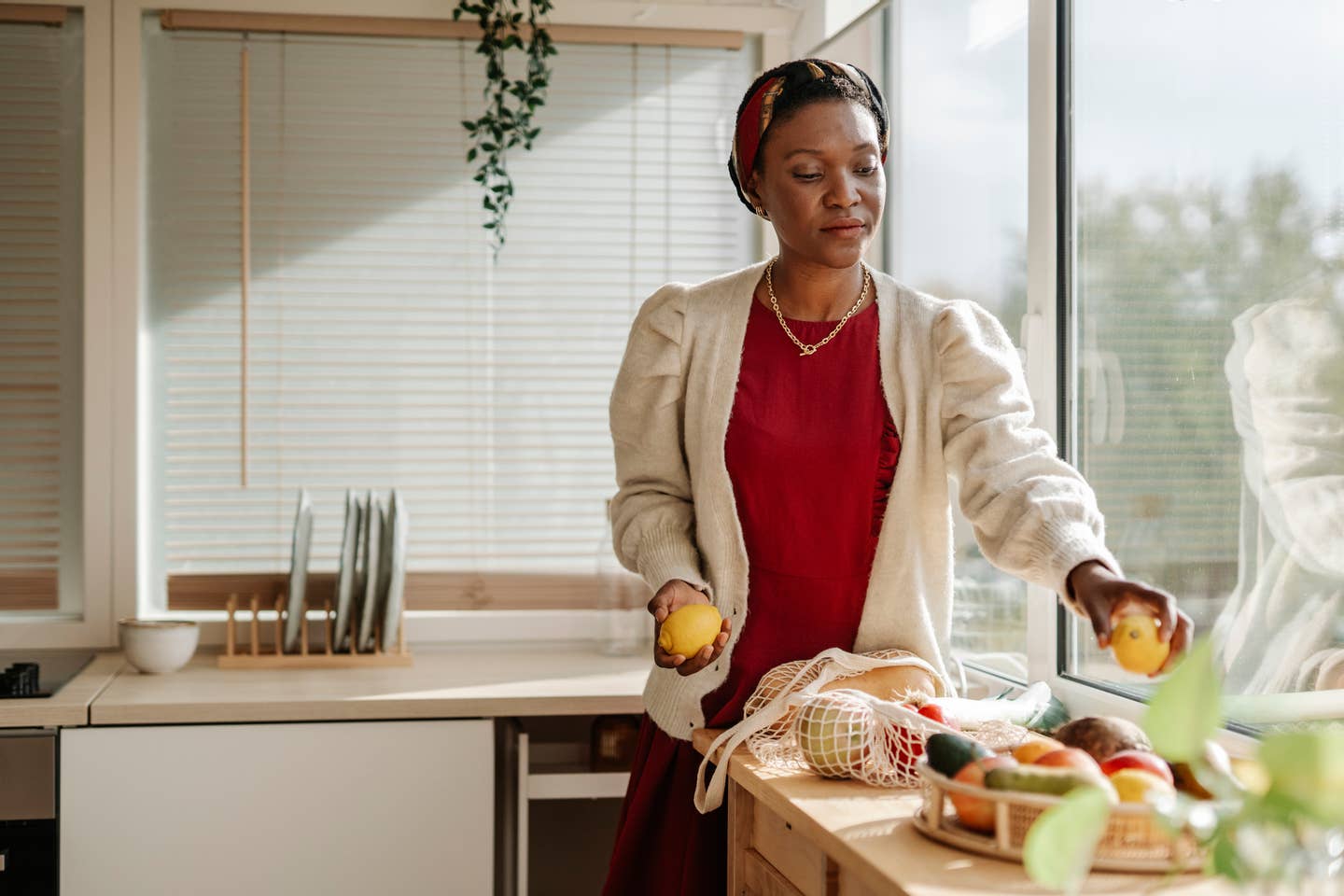
Study Shows How to Lose Weight at Any Age, Even After 60. An RD Explains
Remember when we could eat anything we wanted and not gain weight? Now it feels like we can’t even think about an ice cream cone without it feeling like we could put on five pounds. As we age, our metabolism changes, due to the fact that after 30 the body loses muscle mass every year, in what's called sarcopenia, and muscle burns three times more calories at rest than fat does. Our metabolism also slows down when our hormones shift, making it even harder to lose weight as we age and after menopause. You may even notice that where you put on weight has changed.
Don’t let any of this prevent you from trying to get healthy, lose weight and take back your fitness levels, new research tell us: Age is not a barrier to successfully losing weight, since our habits are more important than the number of candles on the cake.
The recent study published in Clinical Endocrinology looked to dismiss the widely-held assumption that weight loss efforts are not effective in older people. “Weight loss is important at any age, but as we get older we’re more likely to develop weight-related comorbidities of obesity,” the study's lead author, Dr. Thomas Barber said in an interview. “Many of these are similar to the effects of aging, so you could argue that the relevance of weight loss becomes heightened as we get older, and this is something that we should embrace.”
In the study, 242 individuals were randomly selected who had participated in the Warwickshire Institute for the Study of Diabetes, Endocrinology, and Metabolism (WISDEM) obesity progra between 2005 and 2016. They were divided into two age groups, those under 60 and those between 60 and 78.
The participants were coached to make lifestyle changes personalized for each individual patient. The focus was on dietary modifications, psychological support, and physical activity. The majority of the patients had BMIs over 40, which placed them in the morbidly obese category.
Each patient was weighed before and after their participation in the program. When the groups were compared, their results were nearly equivalent but the older people lost more. The over 60-year-olds lost 7.3 percent of their body weight, while the under 60-year olds lost 6.9%. And this happened even though the older group spent an average of 33.6 months and the younger group spend about 41.5 months on the program.
“There are a number of reasons why people may discount weight loss in older people,” commented Dr. Barber in the same interview. “These include an ‘ageist’ perspective that weight-loss is not relevant to older people and misconceptions of reduced ability of older people to lose weight through dietary modification and increased exercise.” He went on to add, “age should be no barrier to lifestyle management of obesity. Rather than putting up barriers to older people accessing weight loss programs, we should be proactively facilitating that process.”
Weight Loss Is Possible at Any Age
Based on the study we just discussed, participants showed a promising change in weight likely due to the individualized approach for weight loss. It can be motivating to see a friend or family member lose weight by following a specific diet or participating in different exercises, but that doesn’t necessarily mean you will see the same results. It may wind up being trial and error to see what lifestyle adjustments work best for you. Here are some specific changes to focus on that are backed by research.
Strength Training Helps to Build Muscle, Which Burns More Fat at Rest
Many people think doing cardio is the only way to go in order to build lean muscle and promote lifelong weight loss, and while it is a beneficial part of an exercise regimen, strength training may be a better option for older adults.
After the age of 50, according to a 2013 article, your muscle mass starts to diminish by 1 percent to 2 percent each year, or about 10 percent per decade. Your muscle strength also declines at a rate of 1.5 percent to 2 percent per year, which sounds depressing, until you know how to prevent and reverse it. Adding muscle-building exercises not only will prevent this muscle loss, but research has shown that it can boost your metabolism.
Plant-Based Protein
Protein is an important macronutrient that is basically the building block of our body since it’s found in every cell we have. While everyone needs protein, a 2017 article states that older adults need more protein than younger adults at an amount of 1.0 to 1.6 grams per kilogram each day.
Not only will getting in your protein requirements help offset any muscle loss, but protein has been linked with reduced appetite and hunger levels, metabolism-boosting, and reduced food cravings.
Work with an expert
When you consult with an expert, it can be the key to learning what weight loss strategies work best for you. Registered dietitians (RDs) go through years of education to learn the ins and outs of a healthy lifestyle. A 2016 study even found that participants who had routine support by an RD saw more weight loss than those who only received support via email (1.8 kg vs. 0.4 kg).
Improve your sleep
Our quality and length of sleep not only help us wake up feeling refreshed, but it could also assist with weight loss. A 2012 study of 245 women found that the group who slept seven or more hours each night were 33 percent more likely to lose weight than the group that slept less than seven hours.
Bottom line: New research shows that older adults have the capability of losing weight just as much as younger adults. This can help to reduce the risk of developing chronic conditions that may come with excess weight.
More From The Beet






